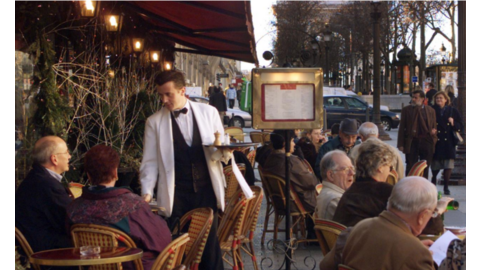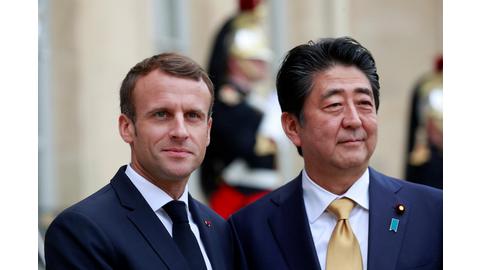As Brexit Looms, Paris Tries a Business Makeover

PARIS — The phone rings a lot at Paris Region Entreprises, a one-stop shop for companies deciding whether to move employees to the City of Light. Typically, callers ask about visas and minutiae of employment law. But not long ago, an executive from Japan called with a stumper: Where, he asked, are the dancing clubs?
“It was a certain kind of club that nobody here had ever heard of,” said Robin Rivaton, the organization’s chief executive. “Kind of a social club for executives and their wives. One of the guys here called around and found one in the western part of Paris.”
Until recently, this kind of personal service was unimaginable. France has long been known for its open hostility to corporations and its suspicion of personal wealth. Taxes were high, regulations were baffling and “It’s not possible” was the default answer to any question — if a company could even find the right person to ask.
Now, the country is in the midst of a sweeping attempt at national rebranding. Labor laws are being changed to make hiring and firing easier. New legislation has slashed a “wealth tax” that was said to drive millionaires out of the country. Courts with English-speaking judges are in the works, and a new international school is under construction to cater to the children of foreign executives.
There’s a sense of urgency behind these changes. Hundreds of financial companies may need to relocate thousands of London-based workers before Britain leaves the European Union by the end of March 2019, the withdrawal known as Brexit. Otherwise, these companies could lose their financial passporting rights, which grants them privileged access to the 27 countries that will remain in the European Union
That has set off a high-stakes international competition among a handful of cities hoping to become Europe’s financial capital. Decision time is looming. The Brexit negotiation breakthrough announced on Friday merely solved preliminary issues that allow the next round of talks to commence. Under the current timetable, a final agreement must be signed well before the March 2019 deadline.
Paris is vying against Dublin, Frankfurt and Luxembourg in a pageant that is not primarily about beauty. What is prized most in boardrooms is an array of business-friendly laws, regulations and culture — the sort of warm welcome that Paris once defiantly refused to offer.
“When you grow up in France, none of the heroes you learn about are entrepreneurs,” said Brigitte Granville, a professor of economics at Queen Mary University of London, who was raised in France. “When someone gets rich in France, people immediately ask, ‘What did he do to make this money? He must be a nasty person.’”
The origins of this attitude are usually traced to the French Revolution, which, Ms. Granville explained, elevated equality to a kind of religion. When François Hollande announced during his presidential campaign in 2012 that “My enemy is the world of finance,” he was summing up a fairly common sentiment.
Now, a new crop of French leaders, most notably the free market-supporting president, Emmanuel Macron, are vigorously trying to shed this anticapitalist reputation. During his campaign, he visited London, home to as many as 400,000 French expatriates, urging them to return to France and “innovate.” And since his election, the government has started a highly aggressive campaign to poach jobs from London.
It began the same day that the Brexit vote results were announced, on June 24 of last year. That afternoon, Paris Region Entreprises splashed banner ads on dozens of websites (“Choose Paris Region” was a not very catchy slogan). A few weeks later, 4,000 letters were mailed to companies around the globe.
By that October, officials with a business district in Paris had posted cheeky billboards in London’s airports and train stations, quipping, “Tired of the Fog, Try the Frogs!” Then came schmoozing and briefings. In February of this year, a delegation of French leaders in politics and business met with more than 80 executives on the 37 floor of the Shard, a landmark building in the center of London.
The French government also appointed Christian Noyer, a former Bank of France governor, to be the country’s Brexit point man. A born diplomat, he cannot be baited into belittling the competition, beyond calling Frankfurt “small and provincial,” hastening to add, “some people may like that.”
He rarely promotes what is most celebrated about Paris, like its gorgeous streetscapes and stellar restaurants, but he believes they will factor, at least a little, into some companies’ relocation decisions.
A company can send staff members to any city they want, Mr. Noyer said, during a brief interview in the lobby of a London hotel. “But if they have a competitor who is going to a nicer place, the best staff might, if they are offered a job in a better city, leave after a few months.”
Local politicians have predicted that 10,000 Brexit-related jobs will eventually move here, creating another 10,000 indirect jobs. Whether the city will come close to that figure is unclear, but a handful of announcements suggest that Paris is at least in the game.
[...]
Source: https://www.nytimes.com/2017/12/10/business/brexit-paris-business-london.html
<figure id="media-100000005595019" data-media-action="modal" itemprop="associatedMedia" itemscope="" itemid="https://static01.nyt.com/images/2017/12/09/business/00PARISBREXIT-2/00PARISBREXIT-2-master675.jpg" itemtype="http://schema.org/ImageObject" aria-label="media" role="group"></figure>


